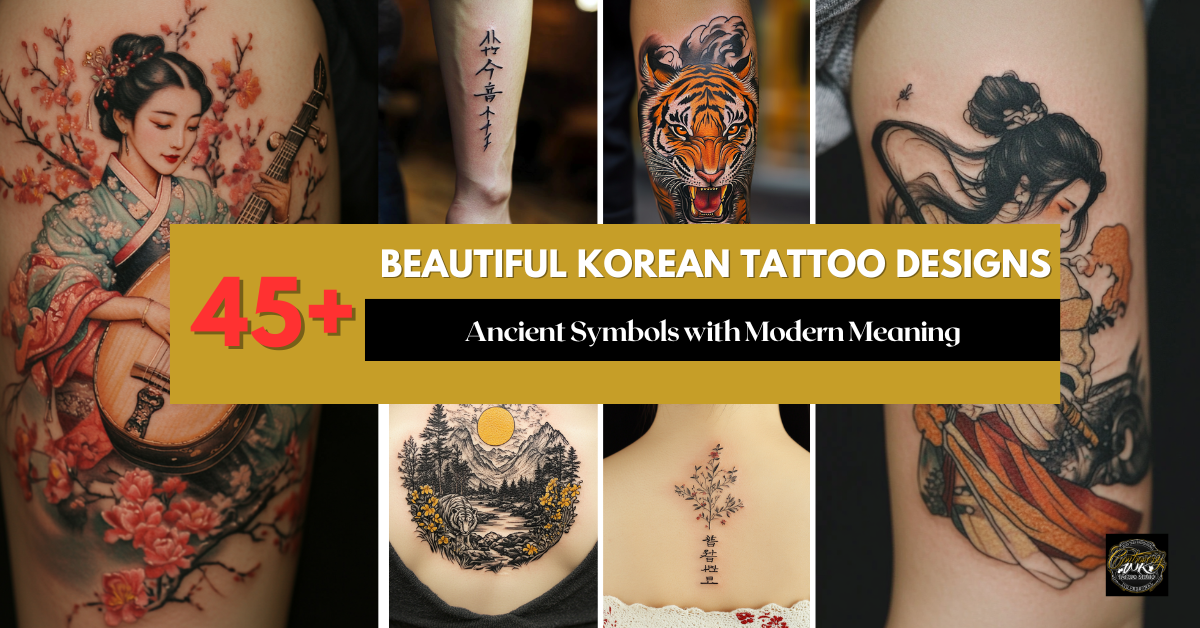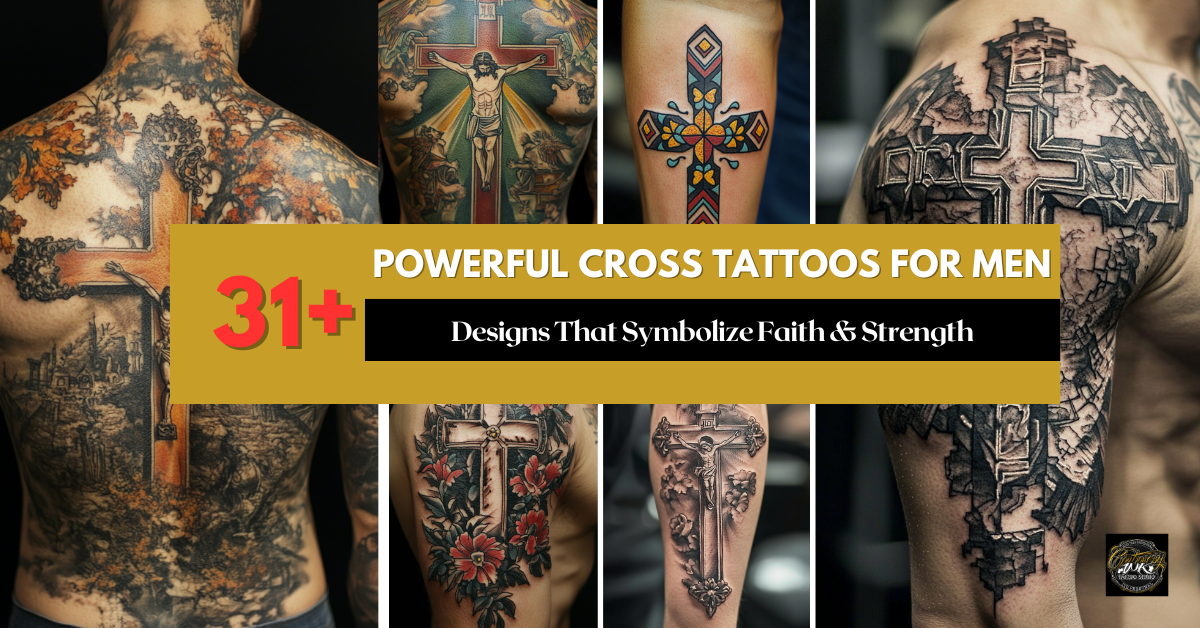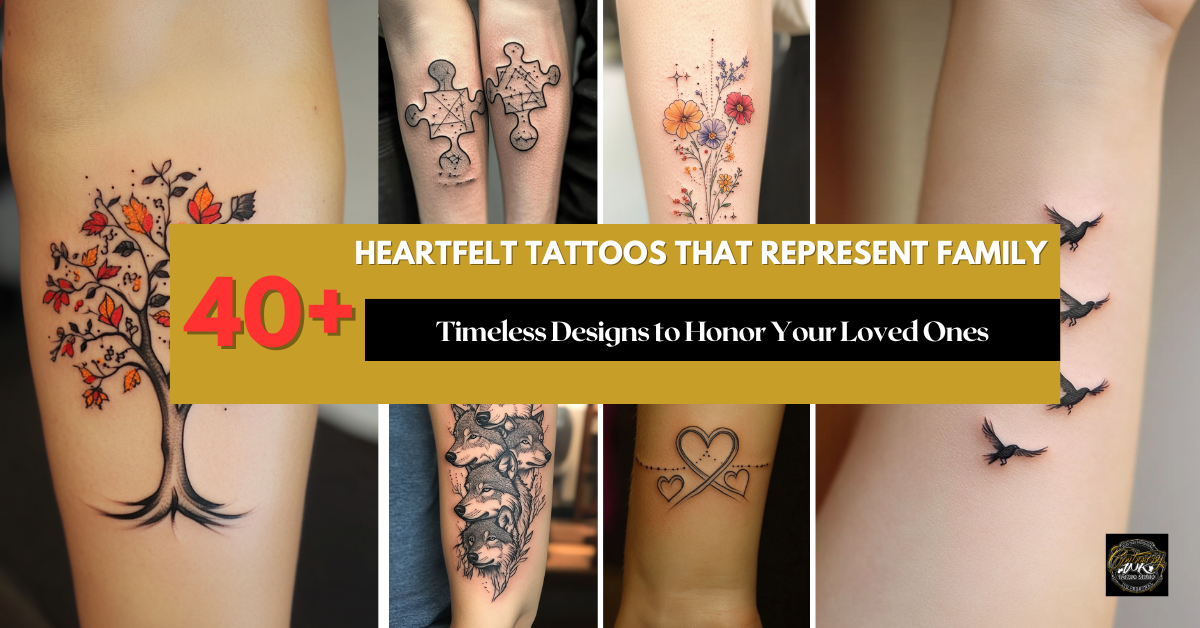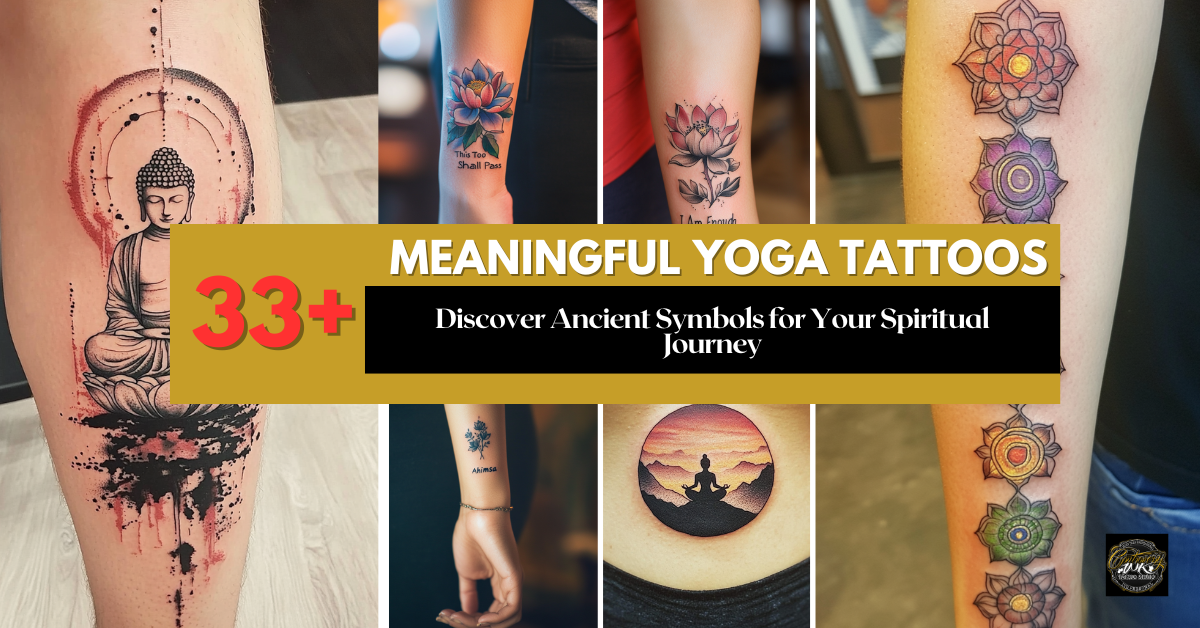If you buy through links on our site, we may earn a small affiliate commission to help support the blog - at no extra cost to you. It never influences our product selection process. Thank you!
Key Takeaways
- Floral motifs carry deep spiritual meanings – Cherry blossoms represent life’s impermanence, peonies symbolize honor and bravery, lotus flowers embody spiritual enlightenment, and chrysanthemums represent imperial power and longevity
- Animal symbols form the foundation of Japanese tattoo artistry – Dragons bring wisdom and protection, koi fish represent perseverance and transformation, tigers embody courage and strength, while phoenix symbolize rebirth and triumph over adversity
- Mythological characters provide supernatural protection – Oni demons ward off evil spirits, Tengu represent martial arts mastery, and wind/thunder gods (Fūjin and Raijin) offer protection from natural disasters and spiritual harm
- Natural elements connect body art to seasonal beauty – Waves symbolize life’s flow and emotional power, clouds represent divine messages and spiritual transition, while maple leaves celebrate autumn’s beauty and time’s passage
- Traditional Japanese tattoos emphasize cultural values – Each design reflects important Japanese concepts like mono no aware (life’s impermanence), samurai honor, Buddhist enlightenment, and the balance between earthly and heavenly realms
Floral Symbols
Floral motifs in traditional Japanese tattoos carry profound spiritual and cultural meanings. Each bloom represents different aspects of life’s journey and human nature.
Cherry Blossoms (Sakura)
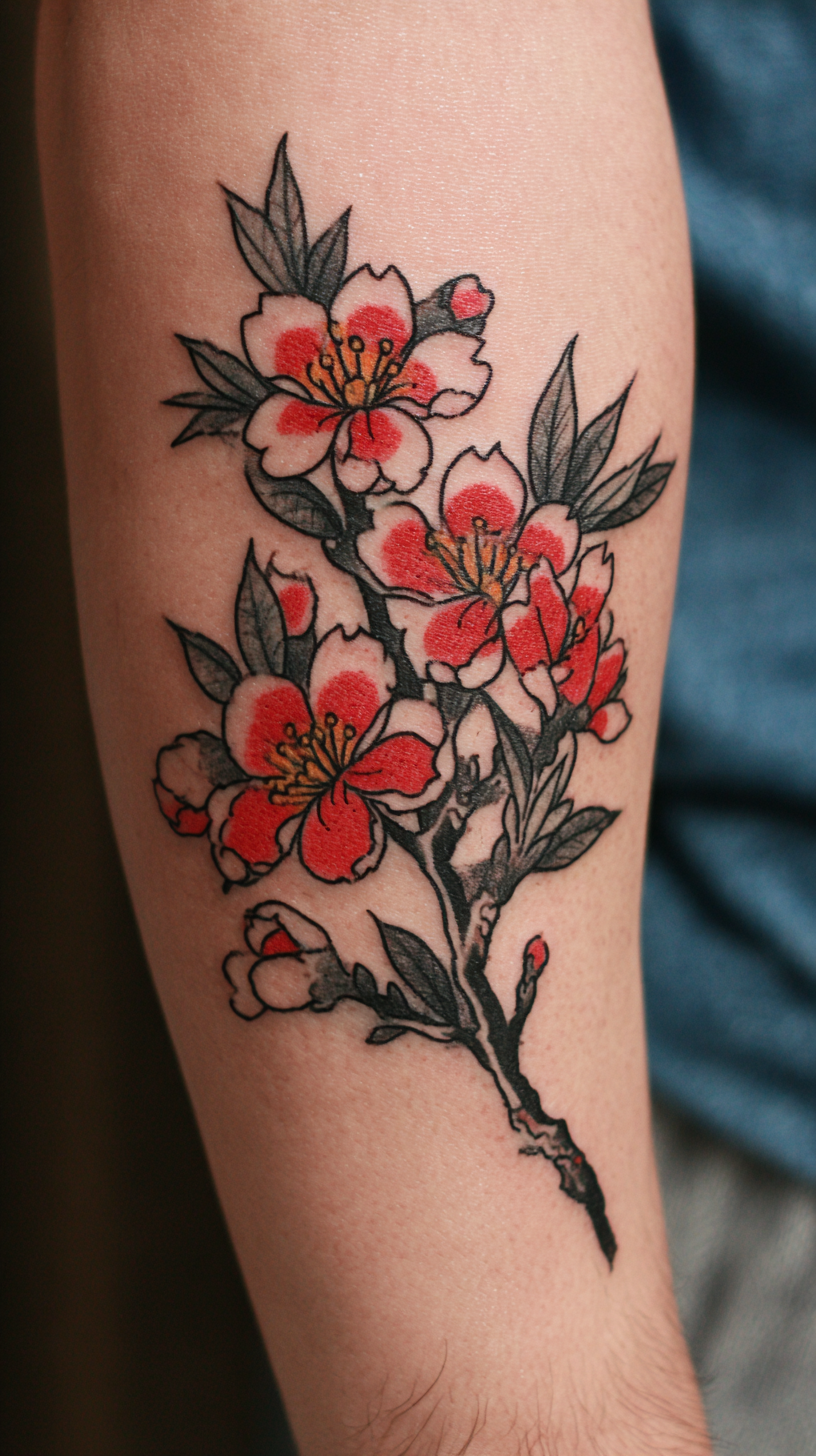
Cherry blossoms symbolize life’s fleeting beauty and the inevitability of death. You’ll find these delicate pink flowers representing mono no aware, the Japanese concept of life’s impermanence. Samurai warriors embraced sakura tattoos to honor their acceptance of mortality. These blossoms often appear in full bloom or falling petals, creating stunning sleeve compositions that remind you to appreciate each precious moment.
Peony (Botan)
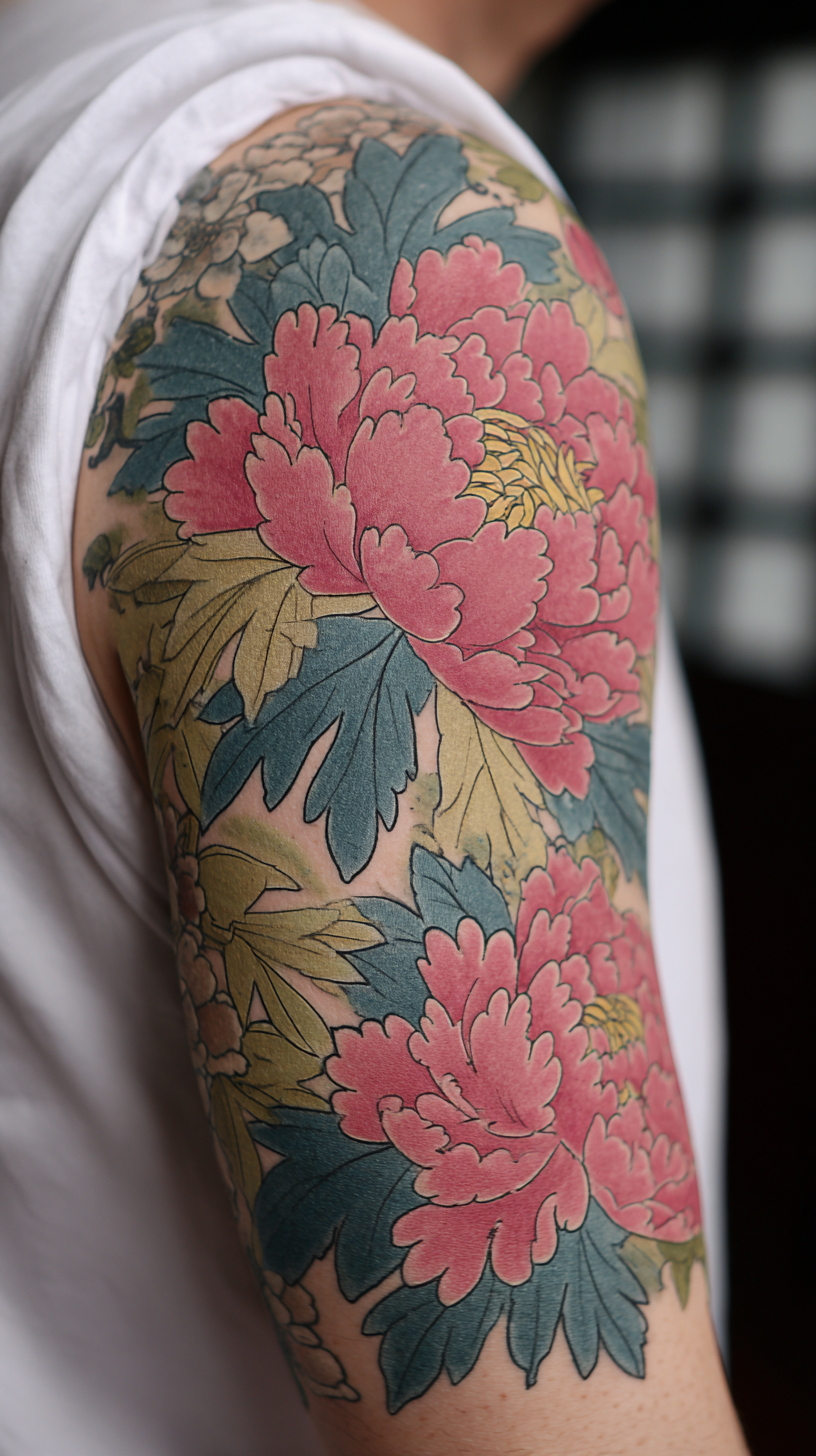
Peonies represent honor, wealth, and masculine bravery in Japanese tattoo tradition. You’ll discover these lush flowers symbolizing the “king of flowers” with their bold, layered petals. Yakuza members historically chose peony tattoos to demonstrate their fearlessness and high status. These dramatic blooms create striking focal points in back pieces, often paired with lions or dragons to amplify their powerful symbolism.
Lotus (Lotus)
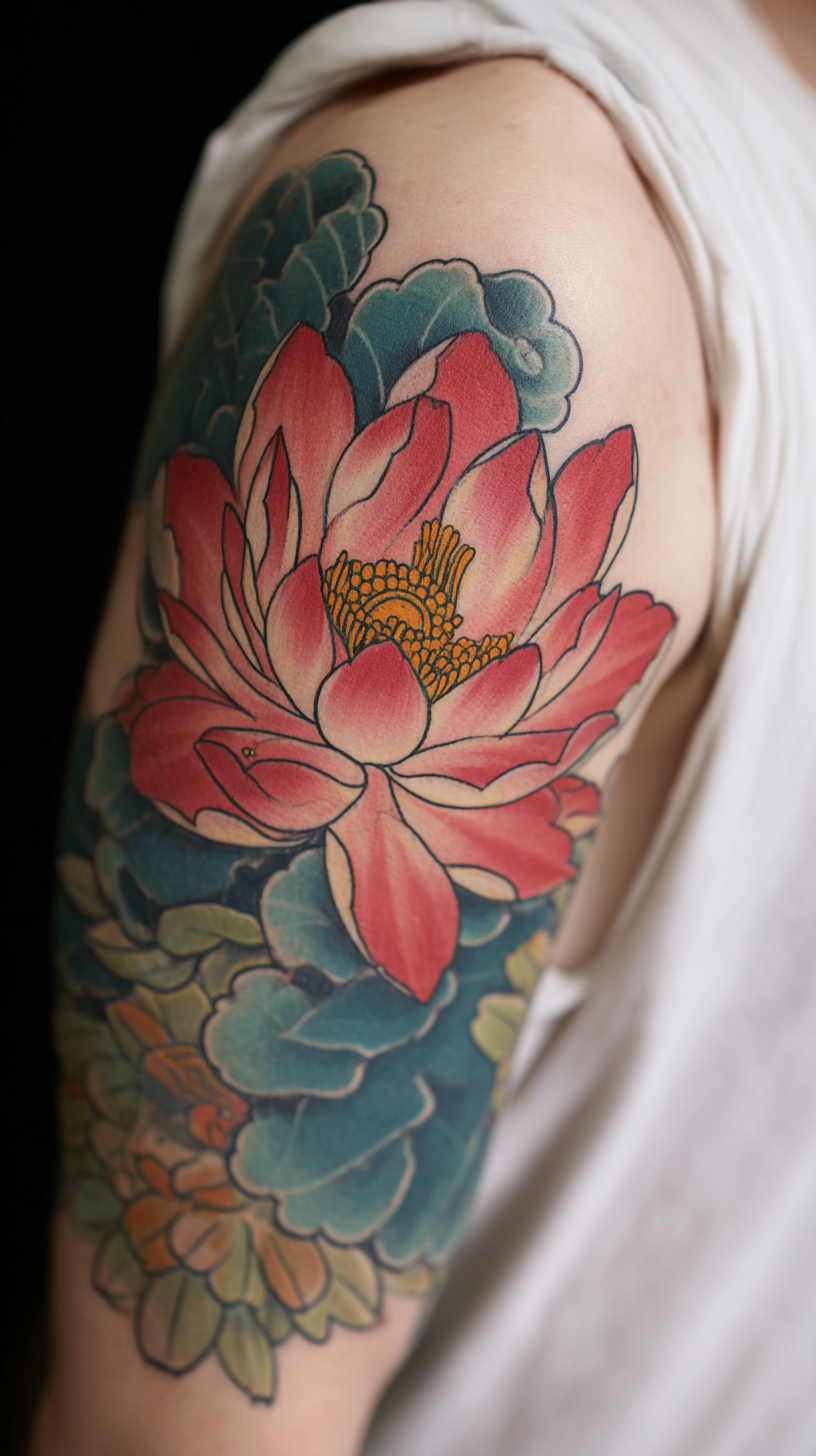
Lotus flowers embody spiritual purity and enlightenment rising from muddy waters. You’ll appreciate how these sacred blooms represent overcoming life’s challenges and achieving spiritual growth. Buddhist influences make lotus tattoos popular among those seeking transformation or rebirth. These elegant flowers typically appear in pink or white, often incorporated into sleeve designs alongside koi fish to emphasize life’s spiritual journey.
Chrysanthemum (Kiku)
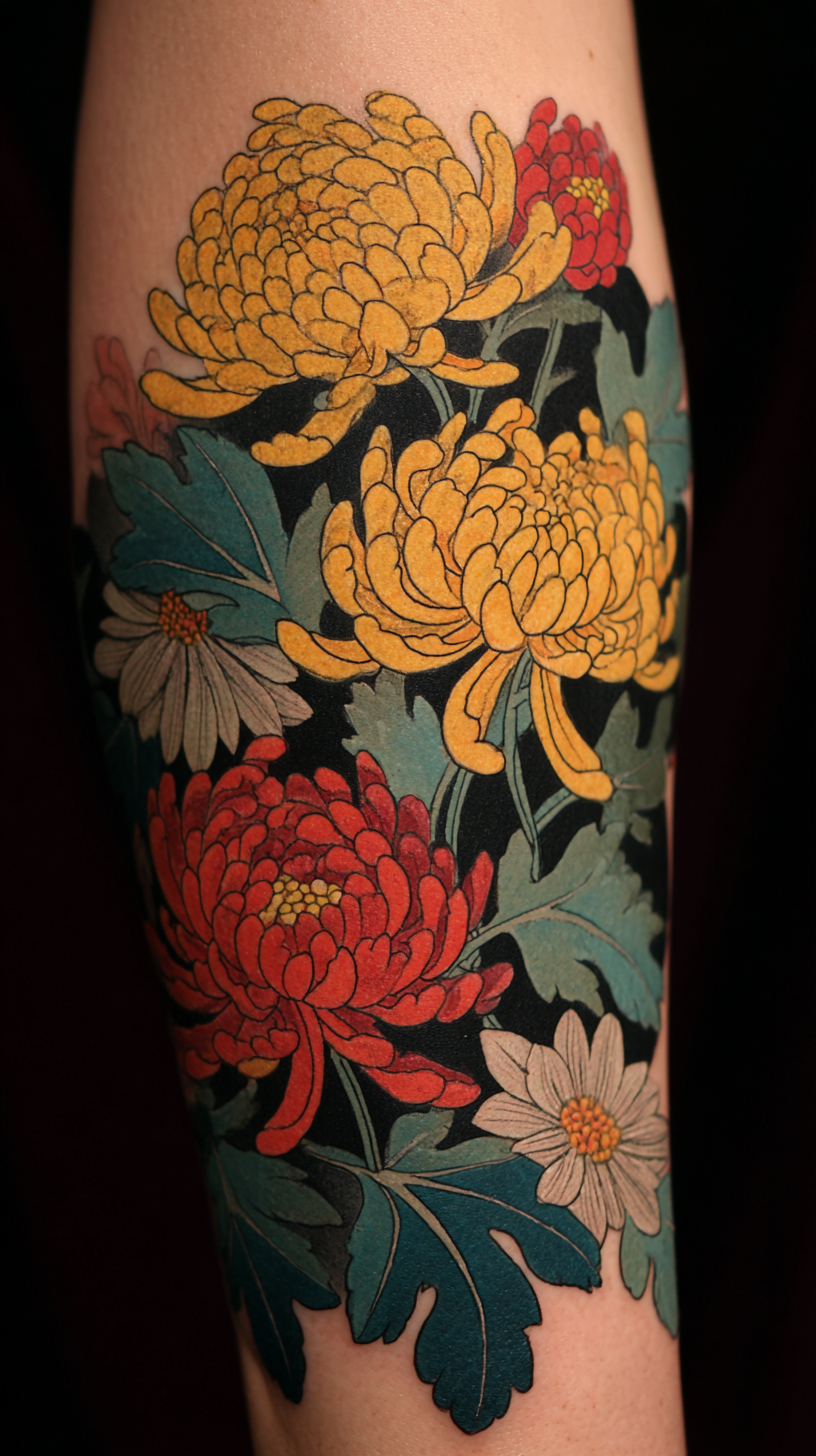
Chrysanthemums symbolize imperial power, longevity, and autumn’s noble beauty. You’ll recognize these flowers as Japan’s national symbol, representing the emperor and royal family. Traditional designs feature sixteen-petal chrysanthemums in vibrant yellows and whites. These regal blooms often complement phoenix tattoos or serve as standalone pieces, celebrating determination, loyalty, and the pursuit of perfection throughout your lifetime.
Animal Symbols
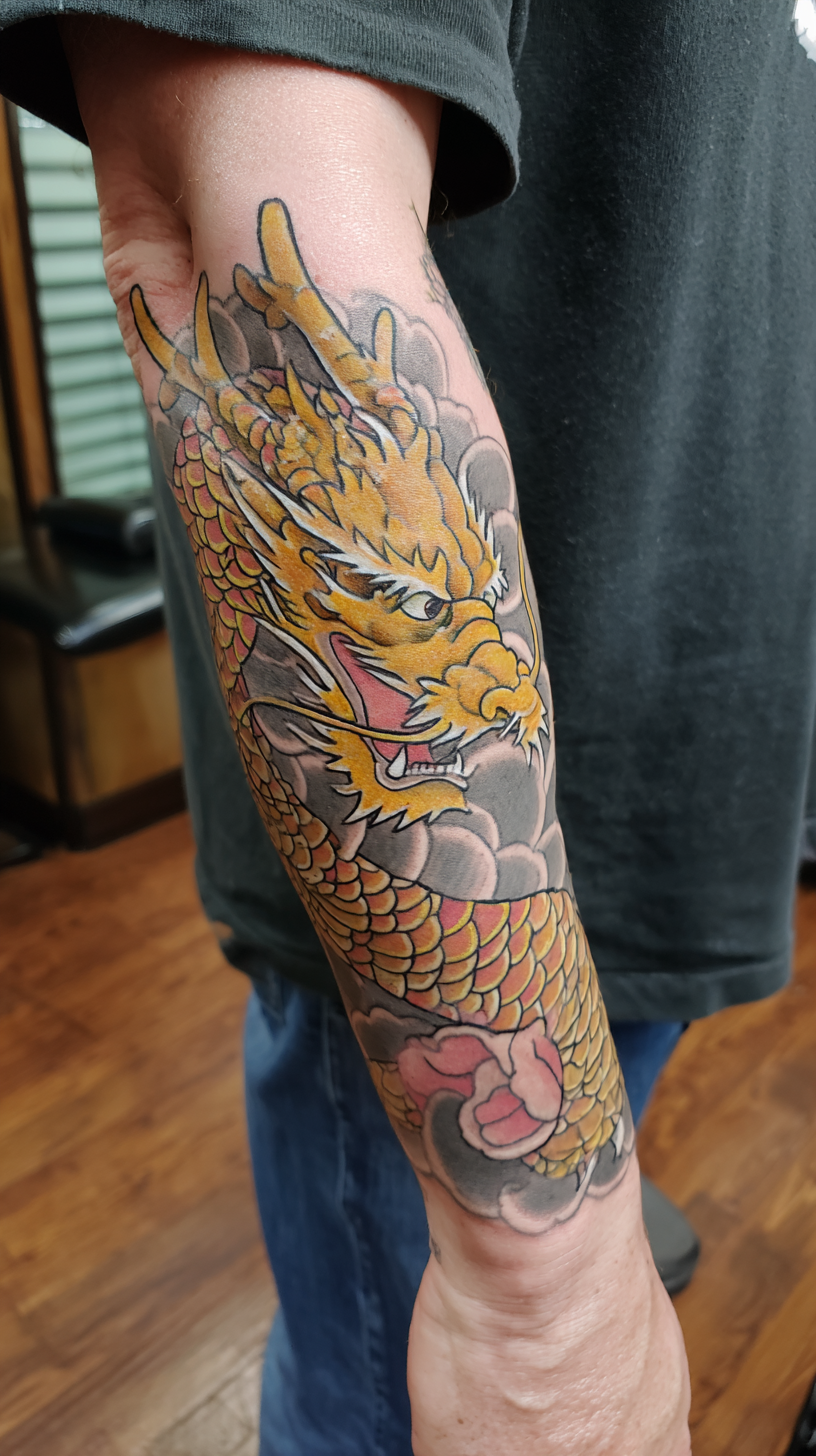
Animal motifs form the backbone of traditional Japanese tattoo artistry, each creature carrying centuries of cultural significance and spiritual power.
Dragon (Ryū)
Dragons represent wisdom, strength, and protection in Japanese culture. You’ll find these serpentine creatures symbolizing water mastery and imperial power. Unlike Western dragons, Japanese ryū are benevolent beings that bring good fortune. Traditional designs feature long, flowing bodies with detailed scales, fierce expressions, and pearl orbs representing wisdom and enlightenment.
Koi Fish (Koi)
Koi symbolize perseverance, courage, and transformation through life’s challenges. You’ll discover these fish represent the samurai spirit and determination to overcome obstacles. Legend tells of koi swimming upstream to become dragons, making them popular among those facing adversity. Traditional designs showcase vibrant colors with flowing water, cherry blossoms, and ever-changing swimming poses.
Tiger (Tora)
Tigers embody courage, strength, and protection against evil spirits and bad luck. You’ll see these powerful cats representing autumn and the wind element in Japanese mythology. Samurai warriors often chose tiger tattoos to display their fearless nature in battle. Traditional designs feature bold stripes, muscular forms, and fierce expressions surrounded by bamboo or wind patterns.
Phoenix (Hō-ō)
Phoenix represents rebirth, triumph over adversity, and imperial grace in Japanese tradition. You’ll find these mythical birds symbolizing fire, justice, and the empress’s power. The hō-ō appears during peaceful times, making it a symbol of harmony and prosperity. Traditional designs showcase elaborate tail feathers, flames, and celestial elements with vibrant reds, golds, and oranges.
Mythological Characters
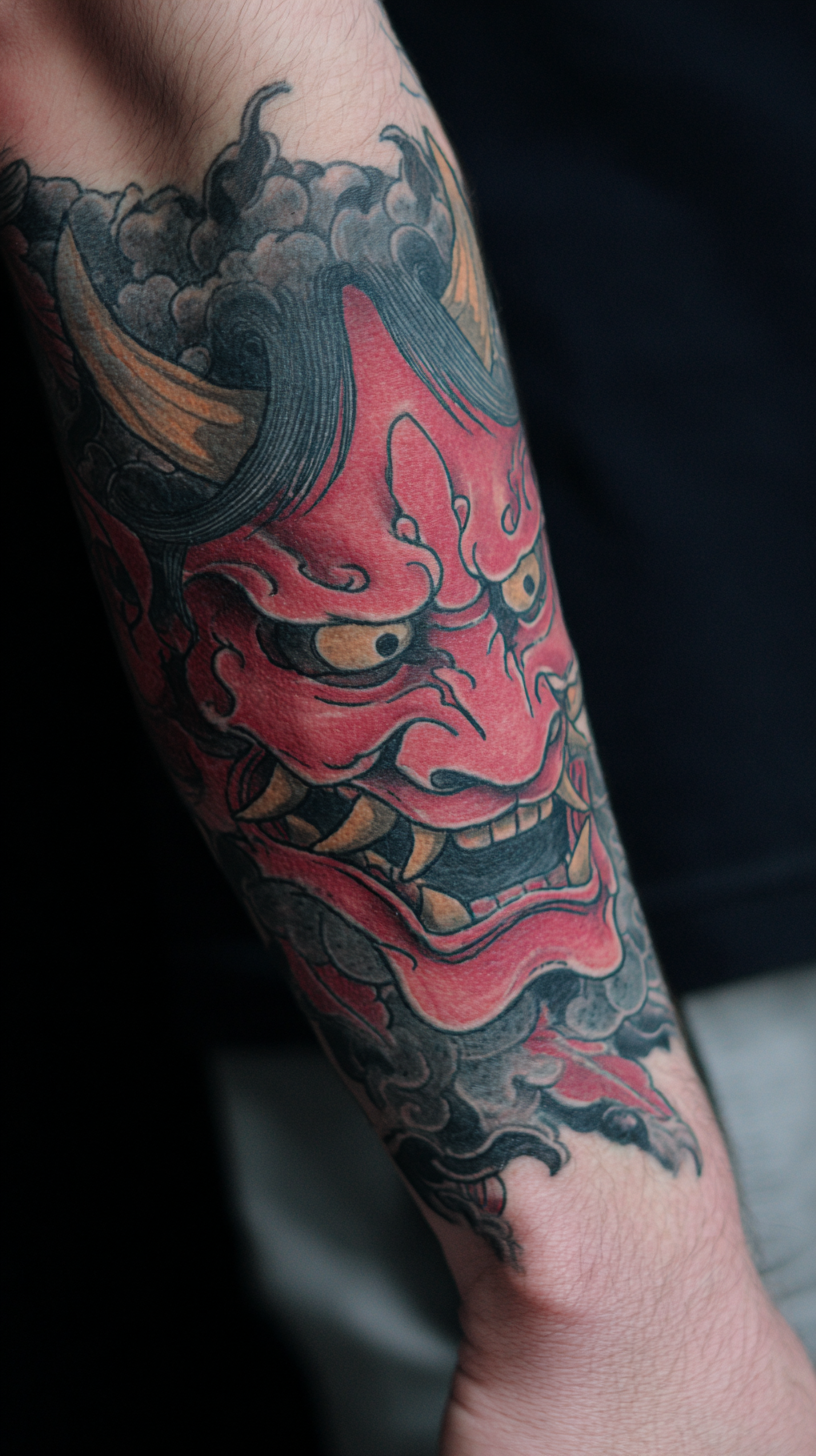
Traditional Japanese tattoos frequently showcase powerful mythological beings that represent supernatural forces and spiritual protection.
Oni (Demons)
Oni tattoos feature fearsome demons with horned heads, sharp fangs, and wild expressions that symbolize protection against evil spirits. You’ll recognize these mythological creatures by their red or blue skin, bulging eyes, and fierce grimaces. Warriors historically chose oni designs to intimidate enemies and ward off malevolent forces during battle.
Tengu
Tengu designs depict bird-like creatures with human bodies, long noses, and feathered wings that represent martial arts mastery and mountain wisdom. You’ll find these mythological beings portrayed as both protectors and tricksters in Japanese folklore. Samurai and martial artists often selected tengu tattoos to honor their discipline and connection to ancient warrior traditions.
Wind and Thunder Gods (Fūjin and Raijin)
Fūjin and Raijin tattoos showcase the wind and thunder gods as muscular figures carrying bags of wind and drums of thunder. You’ll see these divine brothers depicted in ever-changing poses with flowing robes and supernatural energy. These powerful deities represent nature’s forces and provide protection from natural disasters and spiritual harm.
Natural Themes
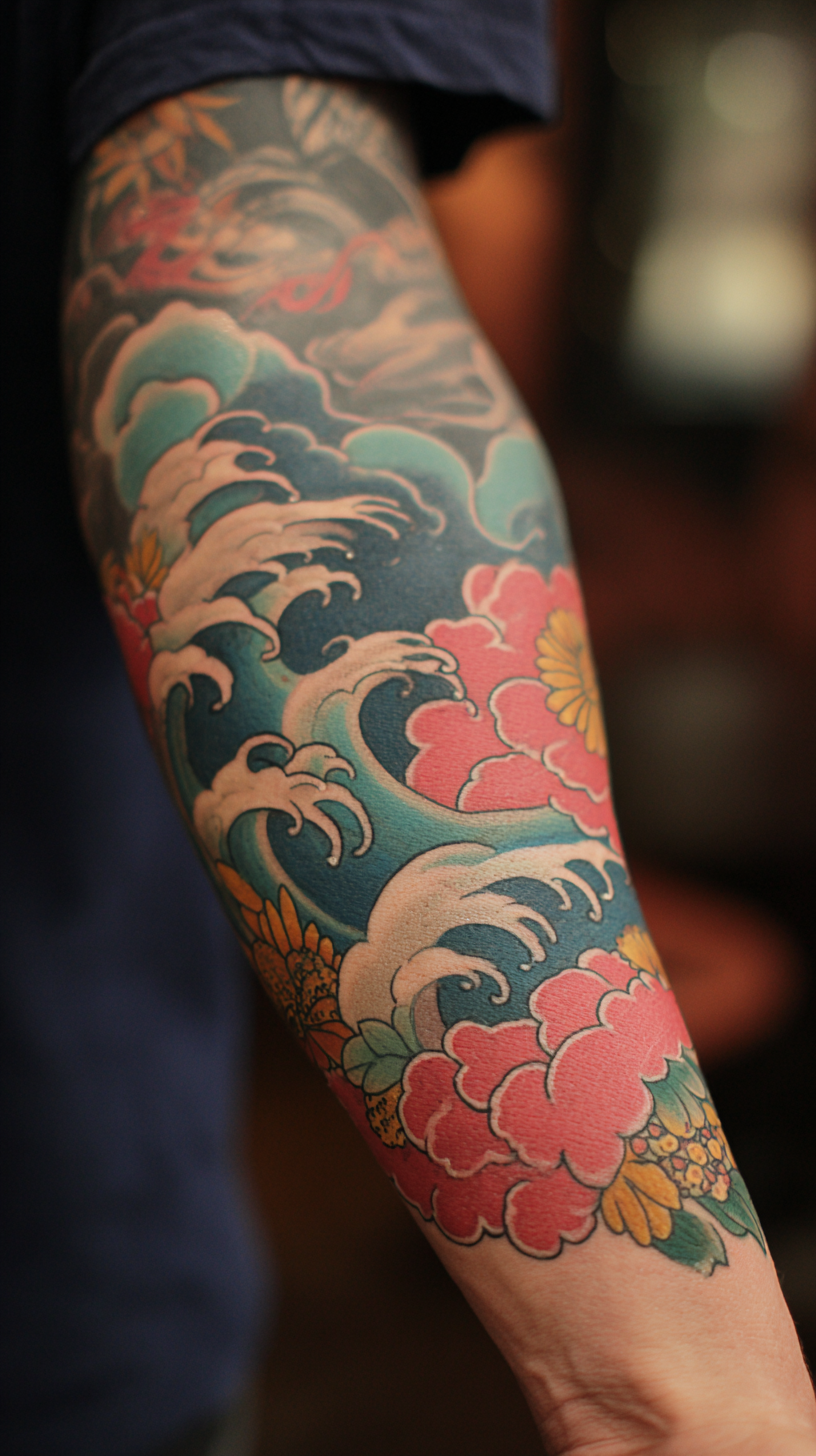
Traditional Japanese tattoos incorporate powerful natural elements that connect your body art to the forces of nature and seasonal beauty.
Waves (Nami)
Waves symbolize life’s constant flow and emotional power in traditional Japanese tattoos. You’ll often see them paired with koi fish or dragons, representing the ocean’s unstoppable force. These designs feature curved lines and white foam caps that create ever-changing movement across your skin, embodying resilience against life’s challenges.
Clouds (Kumo)
Clouds represent divine messages and spiritual transition in Japanese tattoo artistry. You can choose from swirling wind clouds or storm clouds that add dramatic backgrounds to your main subjects. They’re frequently combined with dragons or celestial beings, symbolizing your connection between earthly existence and heavenly realms.
Maple Leaves (Momiji)
Maple leaves celebrate autumn’s beauty and life’s precious moments in traditional designs. You’ll find them scattered around larger motifs like tigers or samurai, representing seasonal change and time’s passage. Their vibrant red and orange colors create stunning contrast against darker backgrounds, symbolizing your appreciation for fleeting beauty.
Cultural Symbols
Traditional Japanese tattoos represent far more than artistic expression—they’re living narratives etched into skin. Each element you’ve discovered carries centuries of cultural wisdom and spiritual significance that continues to resonate today.
Whether you’re drawn to the protective power of dragons or the groundbreaking journey of koi fish these tattoos offer a profound connection to Japanese heritage. The artistry demands respect for its origins and understanding of its deeper meanings.
Your appreciation for this ancient create opens doors to understanding Japan’s rich cultural tapestry. These timeless symbols will continue inspiring both artists and enthusiasts who seek meaningful body art that honors tradition while expressing personal identity.








